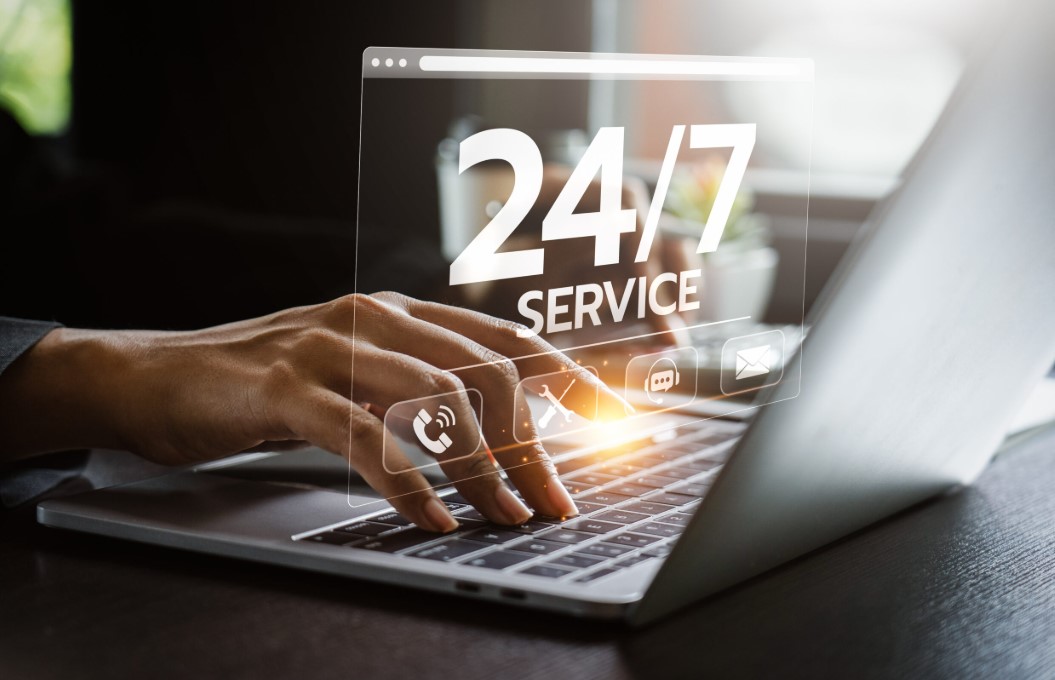
A decade ago, many companies operated within strict office hours, and customer support often mirrored that schedule. Today, the pace of business has shifted. Customers expect instant responses, employees depend on systems that never stop, and downtime translates into lost revenue within minutes.
According to Gartner, businesses lose an average of $5,600 for every minute of network downtime. That figure alone shows why continuous technical support is now a core requirement instead of a bonus feature.
Organizations that provide seamless assistance create not only trust but also resilience against costly interruptions.
Continuous coverage and its direct benefits
Support teams available around the clock reduce risks and strengthen customer loyalty. Companies gain more than technical stability; they earn reputational capital. Clients remember when their issues are solved at midnight just as quickly as during office hours.
Key benefits include:
- Faster recovery from outages – A single hour of e-commerce downtime can cost millions in lost sales.
- Employee productivity – Teams in global offices can rely on uninterrupted workflows.
- Client retention – Quick resolutions prevent frustration and long-term churn.
By offering true 24/7 support, businesses show they value time, reliability, and continuity at every level.

The human expertise behind strong support
Technology itself cannot secure a network or keep databases safe without skilled professionals. Companies rely on experts who not only troubleshoot but also anticipate potential failures. An experienced Linux administrator can, for instance, identify server vulnerabilities before they escalate into outages. The presence of specialized staff ensures that business systems remain robust under pressure.
Beyond technical fixes, these experts serve as trusted advisors who guide teams through upgrades, migrations, and compliance requirements. For business leaders, knowing that real people stand behind the systems gives confidence in both short-term performance and long-term strategy.
How downtime impacts reputation and revenue
Think of an airport where flights are suddenly grounded because air traffic control systems failed. Passengers feel trapped, airlines lose money, and trust erodes quickly. A server crash or cloud outage creates a similar effect for businesses online. Customers may abandon carts, switch to competitors, or flood social media with complaints.
A study by ITIC found that 98% of companies say just one hour of downtime costs over $100,000. The financial hit is clear, but the reputational damage often lingers longer. Technical support acts as a safeguard against this spiral, stepping in before minor disruptions become brand-damaging crises.
Different models of round-the-clock support
Not all 24/7 systems look alike. Businesses tailor coverage to meet their size, budget, and operational needs.
Common approaches include:
- In-house teams – Staffed shifts that provide direct control but higher costs.
- Outsourced providers – External specialists offering scale and lower expense.
- Hybrid models – A blend of internal oversight with outsourced coverage for nights or weekends.
Each model balances control, cost, and expertise. Smaller firms may lean on outsourced support to stretch budgets, while larger corporations invest heavily in in-house teams for tighter security.

The future of technical support in business growth
As companies expand globally, support structures must adapt to multiple time zones, diverse regulations, and rising customer expectations. AI tools already assist in triaging routine tickets, but human expertise remains the anchor for complex problems.
The demand for multilingual support, faster escalation paths, and predictive analytics will continue to grow. Companies that see support as a long-term investment rather than a stopgap measure are better positioned to expand without fear of system instability.
In short, businesses that prioritize 24/7 technical support are not just maintaining systems – they are protecting their reputation, securing revenue, and building a foundation for sustainable growth.













